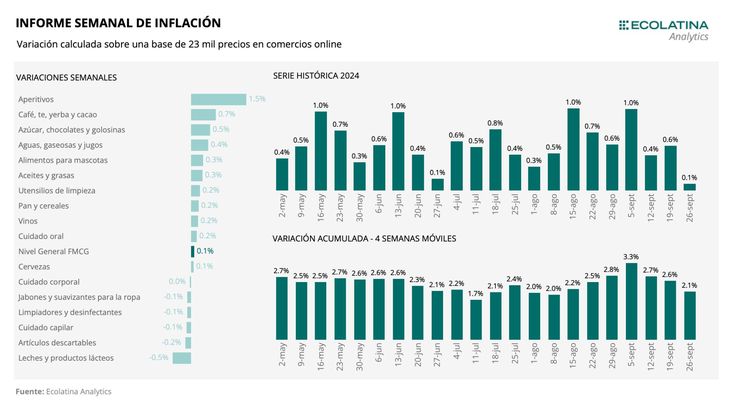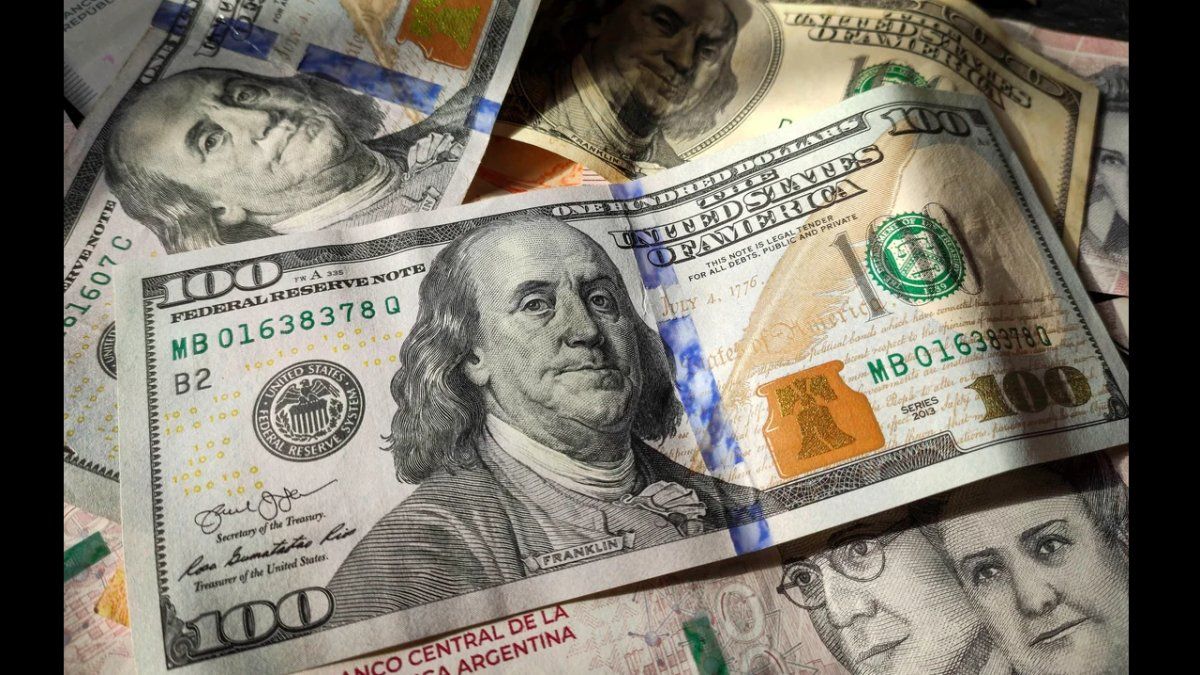The month of September closed with the Lowest weekly inflation of the year for the mass consumption market, 0.1%. This was recorded by the consulting firm Ecolatina, which also assured that the promotions (in quantity and in discount), price dispersion decreased and almost 90% of the items showed no changes. However, far from being positive, they warn that it is difficult for it to be “sustainable.”
Ecolatina’s weekly inflation report, calculated on 23 thousand online store prices, maintains that The products that fell the most in this last week were milk and dairy products (-0.5%), Disposable Items (-0.2%), Hair Care, beers, Cleaners and Disinfectants and Soaps and fabric softeners at -0.1%. Body Care products remained unchanged.
The increases in this last week were led by the category Snacks (1.5%), Coffee, Tea, Yerba and Cocoa (0.7%) and Sugar, Chocolates and Candies (0.5%).
1727447301993.jpeg
Although the data is good, it is feared that the recession will last longer than expected and the fall in income does not seem to reach the bottom
Consumption: concern about the end of the year
Another consulting firm, Scentia, anticipated that consumption could end the year with a drop of more than 10%, which would place 2024 below what was the worst moment of consumption in the 2001 crisis.
According to a report by the consulting firm Scentiathe strong inflation and the consequent loss of purchasing power of Argentines were determining factors in the fall in consumption. “We knew that the second half of the year would be the hardest of the year because it is compared to the best bases of 2022, when there were concrete actions to encourage consumption in an electoral context”explained its director, Osvaldo del Rioin an interview with Argentine News.
Del Río warned that the outlook will not improve in the short term: “We may possibly see double-digit declines up to and including November”he added. According to their projections, consumption could end the year with a contraction of more than 10%: “If this year ends with that fall, we will be below what was the worst moment of consumption in the 2001 crisis”he stated.
While packaged mass consumption, which includes food, beverages, cosmetics and cleaning products with barcodes, suffered a contraction of 17.2% in August compared to the same month last year, all sales channels are also in negative ground: “Supermarkets fell by 18%, self-service stores by 17%, and warehouses and kiosks by about 17%. There is no sector that is being saved from this trend“he concluded.
The causes of the fall in mass consumption
The director of the consulting firm Scentia, Orlando Del Riodelved into consumption behavior during recent months and determined that the factors in the drop in consumption have been the strong inflation and the consequent loss of purchasing power of Argentines. According to Indec, in the first half of the year, real wages fell significantly, which led to a migration towards second and third brands.
“This is not something new, people migrated towards second and third brands”said Del Río. In addition, he added: “People have been looking for cheaper products for a long time, trying to make the most of their purchasing capacity.”
When asked about what to expect for the rest of the year, Del Río was clear: “We do not see an improvement in the short term. The declines are going to continue, and although consumption has stabilized, the situation is still worrying. “
Source: Ambito
I am an author and journalist who has worked in the entertainment industry for over a decade. I currently work as a news editor at a major news website, and my focus is on covering the latest trends in entertainment. I also write occasional pieces for other outlets, and have authored two books about the entertainment industry.




